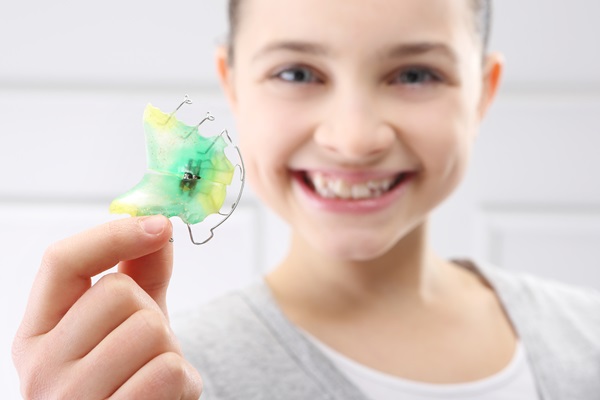 Dental crowns are important in pediatric dentistry. Each primary tooth is a living guide for the development of permanent teeth. But baby teeth can also suffer from decay. So restoring these teeth is important for the general health of your child. If you want to know if pediatric dentistry uses dental crowns, here are the details.
Dental crowns are important in pediatric dentistry. Each primary tooth is a living guide for the development of permanent teeth. But baby teeth can also suffer from decay. So restoring these teeth is important for the general health of your child. If you want to know if pediatric dentistry uses dental crowns, here are the details.
Reasons for getting dental crowns
Pediatric dentistry focuses on baby and new adult teeth. Although baby teeth are temporary, these teeth guide the development of adult teeth. Primary teeth must last for years until they fall out to make room for permanent teeth. Properly developing permanent teeth can prevent complicated alignment treatments in the future.
Tooth decay is common in baby teeth. The thinner enamel layer in these teeth makes them more susceptible to cavities. Once cavities form, tooth decay can progress more easily. That is why it is important in pediatric dentistry to restore them. Parents can choose either dental fillings or dental crowns. Here are the reasons for choosing dental crowns in pediatric dentistry:
- These restorations can restore a damaged or defective tooth.
- Dental crowns can restore a tooth with severe decay. In this case, the decay has become too close to the nerve. The dentist will remove the decay or even remove the nerve. A crown can protect the remaining dental structures.
- These restorations strengthen treated baby teeth that are susceptible to breakage and chipping.
- Caps or crowns are for children with large cavities that dental fillings cannot restore.
- These restorations can protect children who do not practice proper dental care.
Different types of crowns in pediatric dentistry
Pediatric dentistry professionals offer many types of dental crowns. The right one will match the child's needs. Most parents express their preferences to the dentist regarding their child's restorations. Below are some of the common types of dental crowns pediatric dentistry offers:
Tooth-colored crowns
These caps are natural-looking and blend well with the neighboring natural teeth. Most parents choose this type of restoration for durability and aesthetics. Pre-formed crowns are stainless-steel crowns with veneers. The veneer layer gives the teeth their natural color. These go over baby teeth but are still breakable. In comparison, custom-fit crowns match the color, shape, and size of the child's baby teeth.
Stainless steel crowns
These pediatric dentistry restorations are a practical choice for kids with many large decayed areas. Stainless steel crowns can protect molars the most. These caps are durable enough to withstand chewing. In addition, they can last longer than regular dental fillings.
Zirconia crowns
These pediatric dentistry crowns are almost the same as stainless steel crowns. The aesthetic value of these restorations is higher than tooth-colored crowns. Zirconia caps do not discolor or break easily. Even so, dentists do not recommend them for kids with overcrowding.
Pediatric dentistry crowns can help keep baby teeth and new permanent teeth healthy
Cavities can cause damage to baby teeth and new adult teeth. When this happens, the dentist's priority is to save the affected teeth before the decay worsens. Regular pediatric dentistry checkups can detect the damage early. Working with your dentist can ensure that the procedure is completed without issue.
Request an appointment or call Nett Pediatric Dentistry & Orthodontics at 623-759-7658 for an appointment in our Phoenix office.
Recent Posts
Pediatric dentistry professionals always warn against foods that can ruin a child’s teeth. Parents must limit a child’s intake of carbohydrate-rich foods. This can help lower the child’s risk for dental problems. Knowing what foods to avoid can help make oral care easier. If you want to know what foods can harm your child’s teeth…
Once your child’s first few teeth come through (usually before age one), it is time to schedule a pediatric dentistry visit. They can help ensure the teething process goes smoothly and address oral developmental concerns promptly. This review discusses several signs that indicate your baby has started the teething stage.Teething can begin as early as…
In pediatric dentistry, dentists assess how certain food types affect oral health and make recommendations accordingly. Common childhood snacks can harm teeth by breaking down enamel and contributing to periodontal diseases, such as sugar-filled yogurt packs, cookies, and citrus fruits.This review takes a closer look at snacks parents can provide for their children that are…


